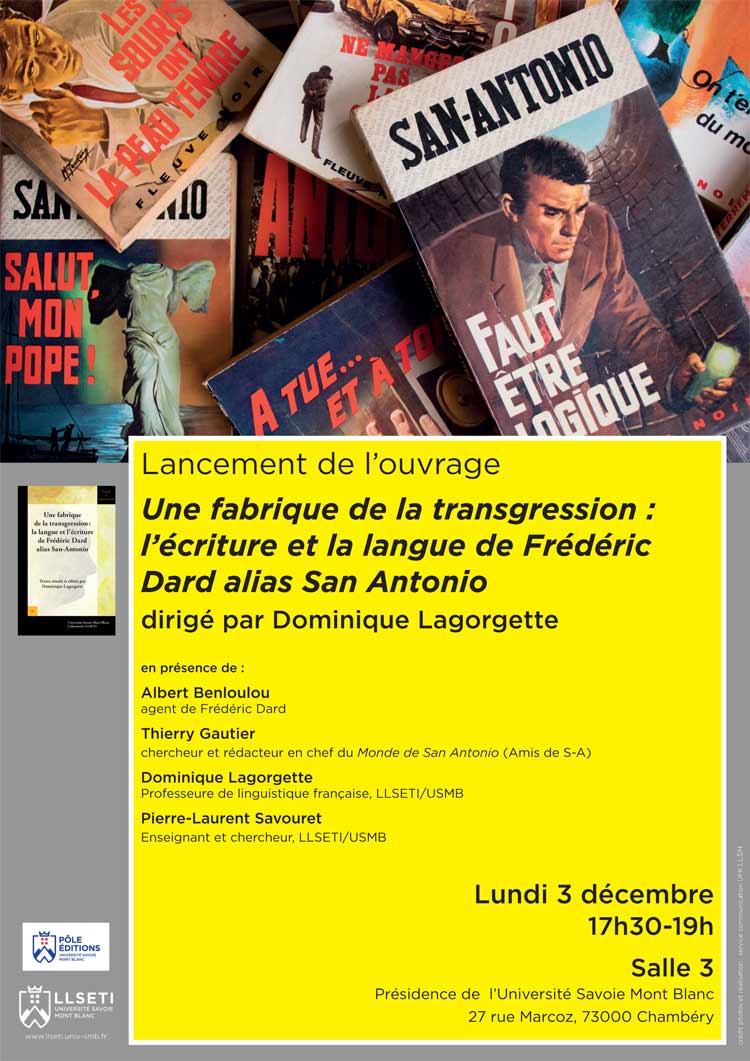On Monday December 3, at the Présidence de l'Université Savoie Mont Blanc (USMB), the book "Une Fabrique de la transgression : la langue et l'écriture de Frédéric Dard alias San-Antonio", edited by Dominique Lagorgette, Professor of French Linguistics and researcher at the Langages, Littératures, Sociétés, Études Transfrontalières et Internationales (LLSETI) laboratory, will be launched by Université Savoie Mont Blanc.
The launch will take place in room 3, from 5.30pm to 7pm, in the presence of :
- Albert Benloulou, Frédéric Dard's agent
- Thierry Gautier, researcher and editor-in-chief of Le Monde de San-Antonio (Friends of S-A)
- Dominique Lagorgette, Professor of French Linguistics, LLSETI / USMB
- Pierre-Laurent Savouret, teacher and researcher, LLSETI/USMB
Dominique Lagorgette is a specialist in the discourse of transgression, and has edited this collective work, which brings together 17 studies on the whole of Frédéric Dard's detective and noir oeuvre. Pierre-Laurent Savouret, a specialist in detective fiction, studied in particular La Peuchère, Frédéric Dard's first story. Thierry Gautier, who has worked on San-Antonio for decades, is editor-in-chief of Le Monde de San-Antonio, the journal of the Société des Amis de San-Antonio. Albert Benloulou was Frédéric Dard's agent, among others.
about the book
For anyone interested in twentieth-century popular literature, it is now unthinkable not to take a closer look at the work of Frédéric Dard, whether it's his San-Antonio series or the lesser-known (because very distinct in form and content) black novels bearing his name. This volume, the result of two symposia held in Chambéry on transgression and on F. Dard's language and writing, shows the complexity of this author's relationship with literature, renewing the codes of detective fiction and noir novels by transgressing them while establishing his own practice. This is a panorama of a multi-faceted body of work whose coherence cannot be overlooked, even if the style sometimes gives the illusion of great diversity. From La Peuchère to the latest novels, it is the same voice, sometimes light-hearted and jocular, sometimes dark and tragic, that declines the themes of the relationship to evil, fear, death and the sacred. The thirteen chapters dealing with these questions of content and form are supplemented by two interviews with those close to him (Albert Benloulou, Françoise Dard) and an interview with Frédéric Dard.
more
Free admission. Contact: Dominique Lagorgette
